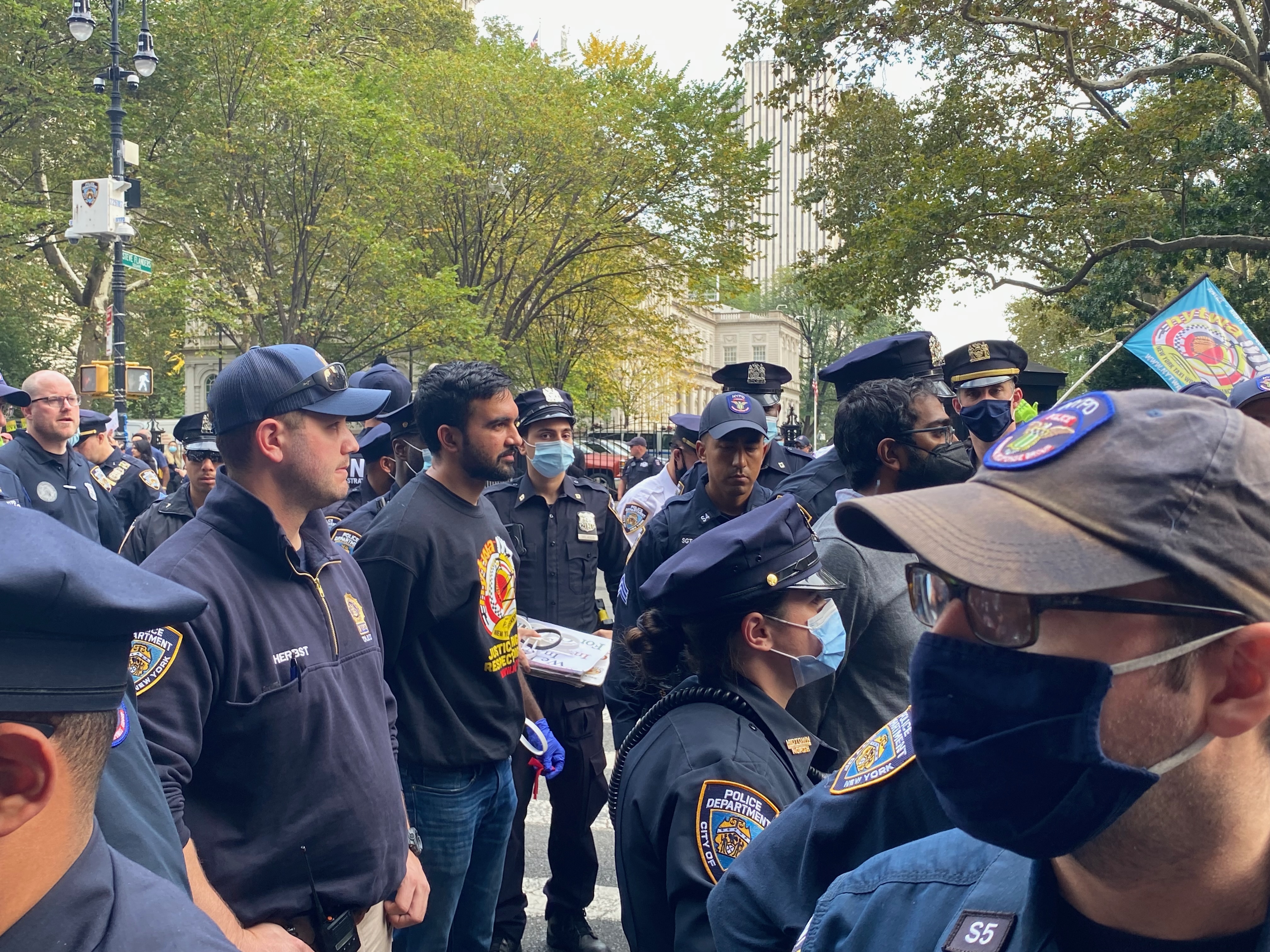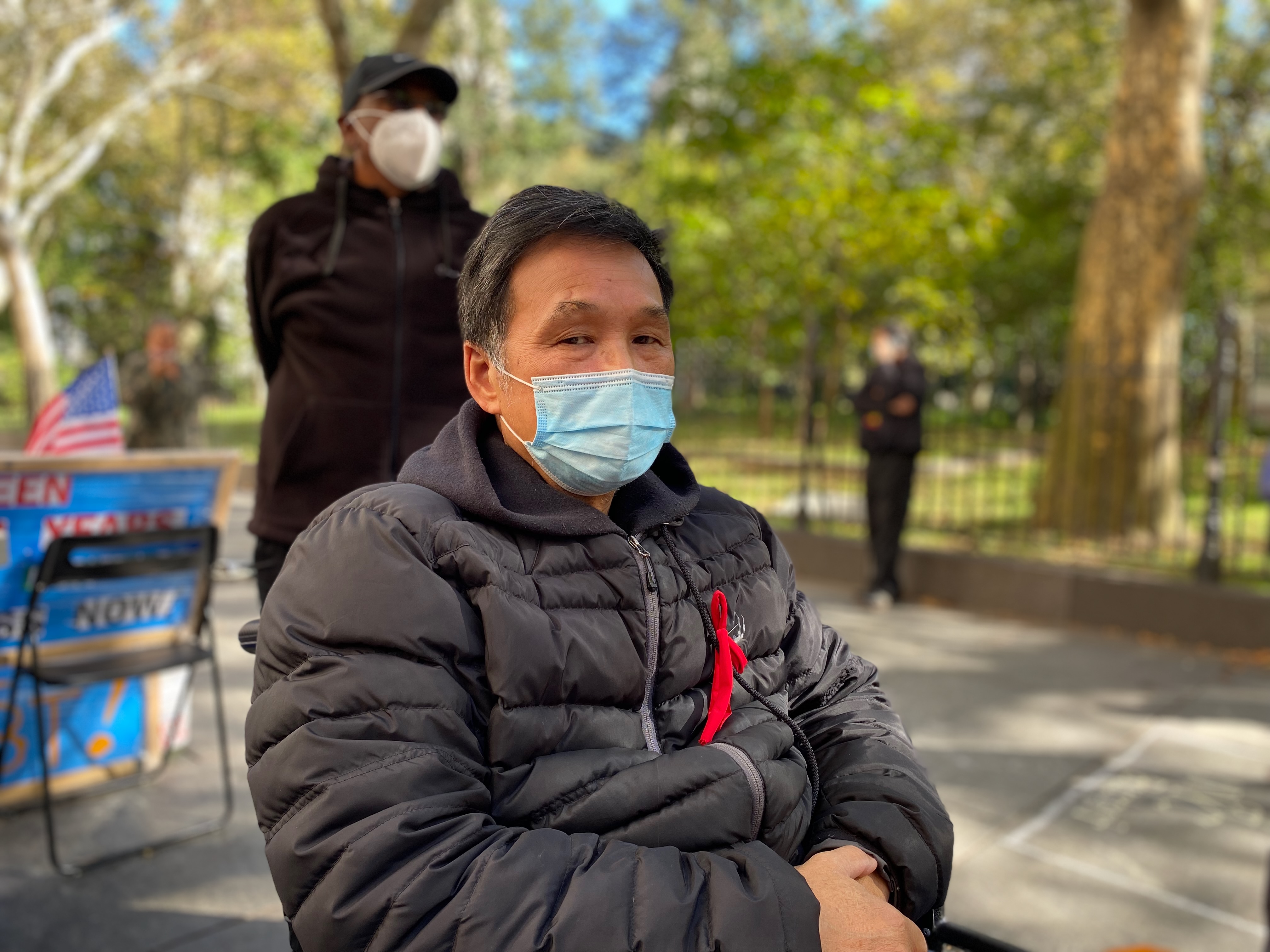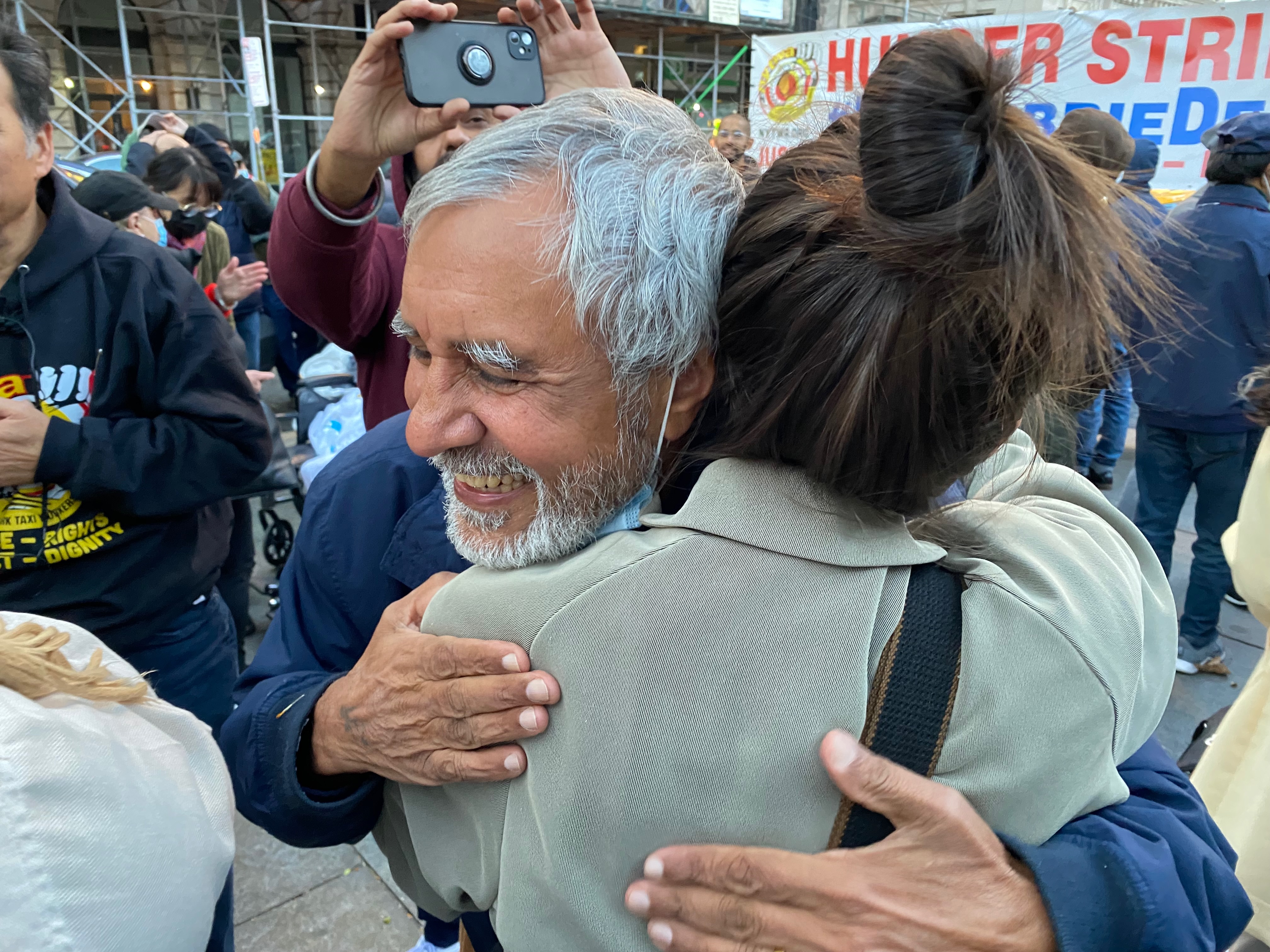Mamdani with Richard Chow on the first day of the hunger strike in 2021.
A little more than four years ago, Zohran Mamdani announced from a lectern in Manhattan’s City Hall Park that he was about to go on hunger strike. He hoped that, by doing so, he would push politicians to provide debt relief for New York City cab drivers. “I will be on strike for as long as it takes,” Mamdani said. “We are going to be moving all of my meetings. All of my calls. All of my office duties. I will be taking them from this protest site.”
As I stood in the park that day, it wasn’t clear just how long “as long as it takes” might mean. Or if it would be enough at all. Mamdani had been an Assemblymember representing Astoria, Queens, for less than a year at that point. Fresh off a birthday, he was only three days clear of his twenties.
But when I spoke with Mamdani and taxi driver Richard Chow a few minutes after both stopped eating, there was uncommon resolve and humility. “What I will go through pales in comparison to what Richard is going to go through and what so many other of the drivers are going to go through,” Mamdani told me. “The face of this hunger strike are people who have ruined their bodies for the city. Sitting in a chair for up to 16 hours a day.”
Looking back, all the key elements of Mamdani’s mayoral campaign were there. Debt relief for taxi drivers who’d been the victims of financial schemes was, in many ways, a fight for a more affordable city. Then there was the already obvious charisma. The specific knowledge of New Yorker’s struggles. The message discipline. The moral core of solidarity rooted in leftist organizing. The contagious optimism. And, most importantly, the belief that he could win.
Five days later, Mamdani had traded his suit for jeans and a New York Taxi Workers Alliance sweatshirt. In an act of civil disobedience, he and other New York elected officials then sat down to block traffic in Lower Manhattan. With cameras watching, NYPD officers lifted them to their feet, zip-tied their hands, and loaded them into a waiting police van.

The next time I returned was Day 13. Chow, then 63 and living with diabetes, had started using a wheelchair. “We don’t have a choice,” he’d told me nearly two weeks before. “I don’t know how long I can stay here. This is our last moment to fight.” The fight was one tinged with tragedy for him. In 2018, Chow’s brother had died by suicide after purchasing a medallion for more than $750,000 and ending up deeply in debt.

It was not clear then, but the end was in sight. Two days later—on Day 15 of the hunger strike—the taxi drivers won.
Reversing course, Mayor Bill de Blasio agreed to a deal that capped debt loads at $170,000 and monthly payments at about $1,100. At the protest site, Mamdani took the bullhorn. “This is just the beginning of solidarity,” he shouted. “We are going to fight together until there is nothing left in this world to win.”
Moments later, Mamdani, Chow, and other hunger strikers broke the fast as they bit into halves of avocados. Chow stood briefly, then returned to his wheelchair—a fist raised in solidarity. Others celebrated with unrestrained joy.

Years later, in May 2025, I ran into Chow and his fellow taxi drivers again. This time, at a Williamsburg music venue, as they waited for Mamdani to take the stage at the first major rally of the campaign.
Mamdani was still the underdog at that point, but they’d seen him overcome the odds before. And soon did so again when Mamdani beat former Governor Andrew Cuomo in the primary.
On Thursday night, as his campaign came to a close, Mamdani was back where he began—with members of the Taxi Workers Alliance.
“Hello, Mr. Mayor Mamdani,” Chow said as they embraced. “I love you. We miss you.”
“I miss you, too,” Mamdani replied.




























